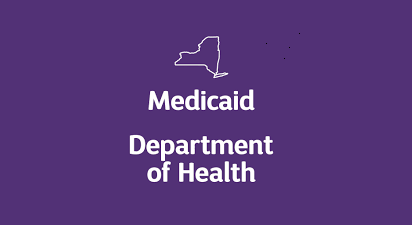In the realm of home health care services in New York State, individuals are presented with a diverse array of options to cater to their specific needs. Among these options are traditional Personal Care Aide (PCA) or Home Health Aide (HHA) services and the Consumer Directed Personal Assistance Program (CDPAP). While both avenues aim to furnish personalized care within the confines of one's home, each presents unique features and benefits. This extensive exploration aims to elucidate the manifold advantages of traditional home health care services over CDPAP in New York State, offering a nuanced perspective for individuals and families navigating these critical decisions.
Professional Expertise:
At the heart of traditional home health care services lies a cadre of trained and certified professionals—PCAs and HHAs—who serve as the backbone of compassionate and effective care delivery. These caregivers undergo rigorous training programs, often exceeding regulatory requirements, to hone their skills and proficiency in attending to a broad spectrum of medical and personal needs. From assisting with activities of daily living (ADLs) to administering specialized care interventions, their expertise forms the bedrock of reliable and high-quality care provision.
Furthermore, traditional home health care agencies often maintain robust supervision mechanisms, with registered nurses or experienced healthcare professionals overseeing the delivery of care. This hierarchical structure ensures adherence to best practices, facilitates ongoing professional development, and fosters a culture of accountability and excellence within the caregiving team.
Reliability and Continuity of Care:
In the realm of healthcare, consistency and reliability are paramount. Traditional home health care services excel in providing a dependable support system characterized by continuity of care. By engaging with established agencies, individuals benefit from access to a network of caregivers who collaborate seamlessly to ensure uninterrupted assistance and support. This team-based approach mitigates the risks associated with caregiver turnover, scheduling conflicts, or unforeseen emergencies, thereby engendering a sense of security and stability for clients and their families.
Moreover, traditional home health care agencies often employ robust contingency plans and backup staffing arrangements to address any unforeseen disruptions in care provision. This proactive approach underscores their commitment to prioritizing the well-being and safety of clients, even in exigent circumstances.
Comprehensive and Tailored Services:
One of the hallmark features of traditional home health care services is their capacity to deliver a comprehensive suite of services tailored to meet the diverse and evolving needs of clients. Beyond addressing basic ADLs such as bathing, grooming, and meal preparation, these agencies are equipped to provide specialized care interventions spanning medication management, wound care, chronic disease management, and more.
Furthermore, traditional home health care agencies leverage comprehensive assessment protocols to develop individualized care plans that reflect the unique preferences, priorities, and goals of each client. This person-centered approach fosters a sense of empowerment and autonomy, allowing individuals to actively participate in shaping their care journey and exercising agency over their health outcomes.
Quality Assurance and Regulatory Compliance:
In an era marked by heightened scrutiny and accountability in healthcare delivery, traditional home health care agencies stand as paragons of quality assurance and regulatory compliance. Governed by stringent licensure requirements and regulatory standards, these agencies undergo rigorous vetting processes to uphold the highest standards of care and professionalism.
Central to this commitment is a culture of continuous improvement and adherence to evidence-based practices. Traditional home health care agencies invest in ongoing training and professional development initiatives to equip their staff with the latest knowledge and skills. Furthermore, they undergo regular audits, inspections, and accreditation reviews to validate their adherence to established benchmarks of excellence.
Peace of Mind and Emotional Support:
Navigating the complexities of caregiving can be emotionally taxing for families and loved ones. Traditional home health care services offer a beacon of reassurance and emotional support for families grappling with the challenges of caring for a loved one at home. By entrusting their loved one's care to trained professionals, families can alleviate the burdens associated with caregiving responsibilities and cultivate a nurturing and supportive home environment.
Moreover, traditional home health care agencies often provide avenues for family involvement and participation in the care planning process. This collaborative approach fosters open communication, mutual respect, and shared decision-making, thereby strengthening familial bonds and promoting holistic well-being.
Access to Ancillary Services and Community Resources:
Beyond the confines of direct care provision, traditional home health care agencies serve as gateways to a wealth of ancillary services and community resources aimed at enhancing the overall quality of life for clients. From educational workshops and support groups to socialization activities and transportation assistance, these agencies offer a holistic suite of services designed to promote health, independence, and social engagement.
Furthermore, traditional home health care agencies leverage their extensive networks and partnerships within the community to facilitate seamless access to specialized medical services, durable medical equipment, and other essential resources. This collaborative ecosystem empowers clients to navigate the complexities of the healthcare landscape with confidence and ease, fostering a sense of belonging and connection within their communities.
Conclusion:
In conclusion, the decision to opt for traditional home health care services over CDPAP in New York State is imbued with multifaceted considerations, each bearing significant implications for the quality, continuity, and holistic nature of care provision. Through a comprehensive analysis of the myriad benefits offered by traditional home health care services—from professional expertise and reliability to comprehensive services, quality assurance, emotional support, and access to ancillary resources—individuals and families can make informed choices aligned with their unique needs, preferences, and aspirations. In embracing the ethos of compassionate and client-centered care, traditional home health care agencies emerge as stalwarts of excellence, resilience, and unwavering commitment to enhancing the lives of those they serve.









